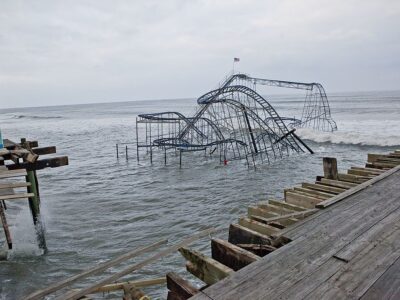Jeffrey Schlegelmilch2
-

Climate School Experts on the Los Angeles Fires: Causes, Impacts and Recovery
As California battles devastating wildfires, our researchers are helping to make sense of how they became so destructive, and what’s needed for recovery.
-

A Disaster Expert Explains Why the L.A. Fires Have Been So Catastrophic
Jeffrey Schlegelmilch, director of the National Center for Disaster Preparedness, discusses why these fires have been so devastating and what can be done about wildfires going forward.
-

From Cornwall to Columbia: One Climate and Society Student’s Interdisciplinary Worldview
Amy Campbell reflects on her journey to the Climate School, where she is currently a Fulbright scholar, focusing on climate risk and disaster preparedness.
-

Four Value Propositions for Climate Action Under a New Presidential Administration
Jeff Schlegelmilch and Amy Campbell suggest four paths to consensus regarding climate adaption action over the next fours years.
-

A New M.S. in Climate Program Focuses on Disaster Management
A Q&A with Jeffrey Schlegelmilch, director of the National Center for Disaster Preparedness at the Columbia Climate School, about the unique certificate program and its holistic approach to disaster management.
-

Twelve Years After Sandy, Have We Gotten Better at Preparing for Disaster?
Jeffrey Schlegelmilch, the director of Columbia’s National Center for Disaster Preparedness, reflects on applying lessons from Hurricane Sandy to more recent disasters.
-

A Showcase Combining Knowledge and Action
The Climate School’s first-ever showcase highlighted the school’s mission to partner with organizations outside of Columbia to build climate solutions.
-

Columbia Climate School Launches New M.S. in Climate Program
The new degree provides core climate knowledge, applied learning, skill-building and professional development, all while integrating climate justice and equity throughout the curriculum.
-

How to Prepare for a Stormy “Supercharged” September
As storms and disasters become less predictable and more extreme, it’s important to understand the risks where you live and have emergency plans in place.

By studying thousands of buildings and analyzing their electricity use, Columbia Climate School Dean Alexis Abramson has been able to uncover ways to significantly cut energy consumption and emissions. Watch the Video: “Engineering a Cooler Future Through Smarter Buildings“
